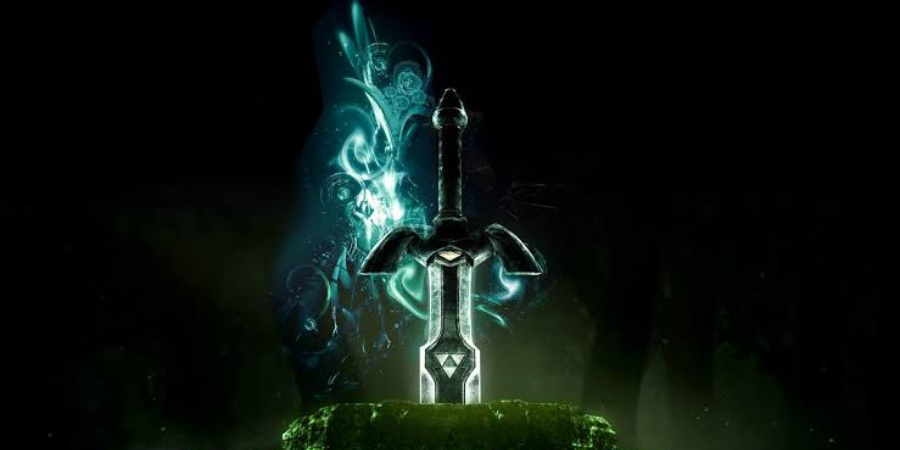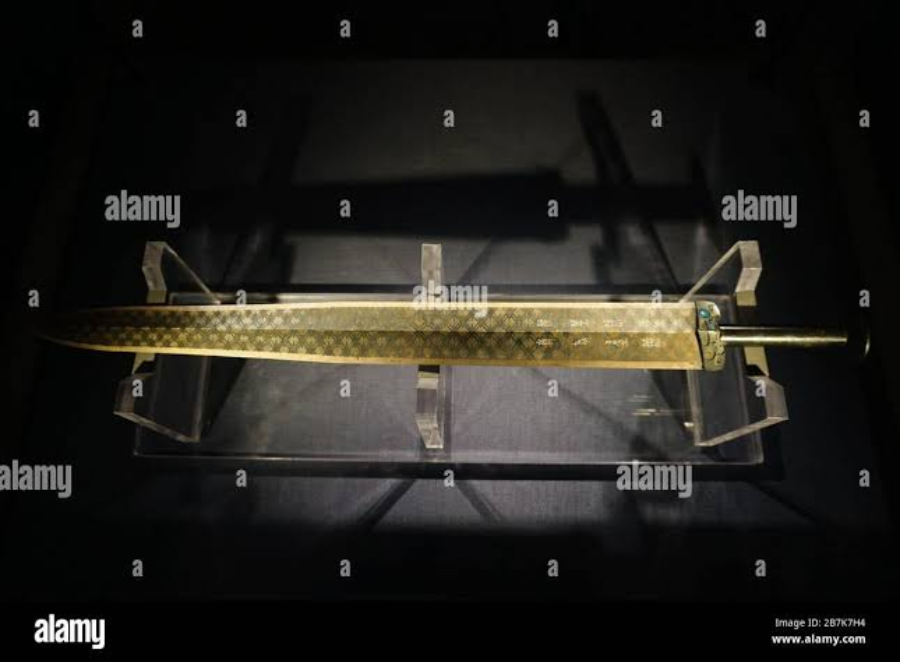

CHINA
In Jiangling County, ancient tombs were found in 1965 while an archaeological study was conducted along the Zhang River Reservoir's second main aqueduct in Jingzhou, Hubei.
Over two thousand objects were retrieved from the sites, among them an elaborate bronze sword discovered inside a coffin containing a human skeleton. The coffin was found in December 1965 at Wangshan site #1, which is about 7 kilometers (4.3 miles) away from the ruins of Ying, which is now known as Jinancheng 纪南, the former capital of Chu.
The sword was discovered enclosed in a black lacquered wooden scabbard.
The Goujian Sword is a double-edged, more than two millennia-old bronze sword that was discovered in China. It can still effortlessly cut through 20 pages at once, despite its advanced age. It is a really intriguing blade that defied time itself because of its unusual sharpness and usefulness.
We are going to talk about the ancient Chinese Goujian Sword in this article. We will discuss its intriguing qualities and then how this sword can best utilize them. Its fascinating history and the reason it has lasted for more than two millennia in almost flawless condition will also be covered.
The sword's overall length is 22 inches (55.6 cm), and its hilt measures 3.3 inches (8.4 cm). The beautifully formed blade was mainly composed of copper, but the edges have more tin than copper, which gives them greater hardness and edge retention. A recurring rhombi pattern adorns both sides of the blade, its dark lines striking against the sword's general golden color. In the meantime, the guard has turquoise and blue crystals inlay.
The blade has eight characters etched on one side in a script called bird-worm seal script. We now know the meaning of six of these archaic characters. "King of Yue" and "made this sword for [his] personal use" are written in the script. Although the identities of the remaining two characters are unknown, experts surmise that they reveal the name of the previously mentioned King of Yue.
The owner of the sword was hotly debated in light of these fascinating features. It was difficult to determine which of the nine kings that governed Yue during the time the sword was attributed to be the real owner. However, following months of research on the sword and the tomb, historians, archaeologists, and Chinese linguists agreed that the weapon belonged to Goujian.
The legend says if the sword get into powerful hand it's become even stronger.
The bronze double-edged Sword of Goujian can still effortlessly cut through 20 layers of paper at once, even after more than 2,000 years.
Early bronze swords functioned as both a weapon and a status symbol.Swords were also worn by literati by the Tang Dynasty (AD 618–907) as an ornament, a status symbol, or an indication of ambition.
And the Sword of Goujian is the most well-known illustration. The Goujian sword's hilt is embellished with turquoise and blue crystal, while the blade is patterned with repeated rhombus, or parallelograms.
Shao was buried holding the renowned sword in order to commemorate his valiant military achievements to the generations that followed.
However, other scholars believe that the sword is a dowry rather than a trophy. It is possible that Goujian delivered the sword to King Zhao of Chu after one of his daughters married into that state, and that King Zhao then presented it to Shao.
Whichever version of events is accurate, one thing is certain: the sword is expertly cast. It is composed of an alloy comprising aluminum, sulfur, copper, tin, and other metallic components.
